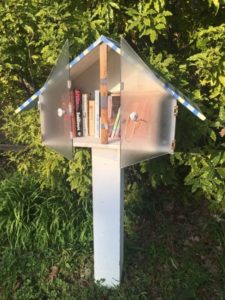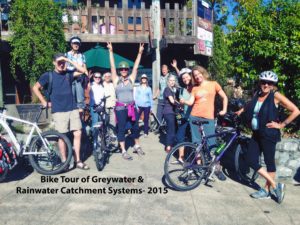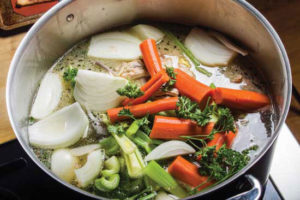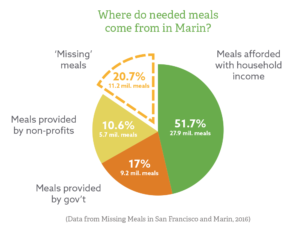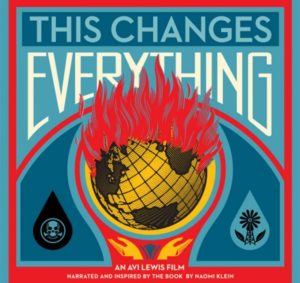Slide
Take our Short Survey- We want to hear from you!
Please take our Sustainable Fairfax Survey to let us know what sustainability topics you care about, including those you would like to work on, and those that are most important to our community.
As a thank you, you will be automatically entered to win a Sustainable Fairfax grocery bag. We will draw for the winner of the bag after we reach 50 respondents.
Thank you!
Youth Blog: Hunger in Marin- What Can You Do?
Despite being one of the wealthiest counties in the nation, Marin County has a widespread population of people who are food insecure. Food insecurity is the state of living without reliable access to a sufficient quantity of affordable, nutritious food. Food insecurity is having to choose between impossible decisions like having the food you need or having shelter and a place to live.
There are nearly 50,000 people in Marin County who are food insecure, and worry about where their next meal is coming from. In Marin, over 16,000 seniors are food insecure. Many seniors have a difficult time getting access to fresh produce and affording nutritious foods. In a recent survey of 3,000 seniors, 46% report running out of money for food each month. On top of this, 3,500 seniors over 65 have annual incomes below the Federal Poverty Level of $11,670. These alarming and distressing facts demand change and require community effort to ensure that everyone in Marin has access to fresh, healthy, nutritious foods.
Marv Zauderer, founder of ExtraFood, came up with one solution. The United States has an extremely high rate of food waste, at a rate of over 40% (Zauderer). That means for every ten apples you buy, four of them go rotten! This rate of food waste is unacceptable, given the number of people in our local community who are food insecure on a daily basis. Zauderer founded ExtraFood because he witnessed how many people in this county were food insecure, and wanted to ease people’s worries about where their next meal was coming from. So much food was not being eaten and Zauderer realized how this “creates unnecessary waste and is bad for the environment.”
Zauderer decided to tackle the issue of food waste and food insecurity by creating a system to recover fresh healthy food that would normally go to waste and dona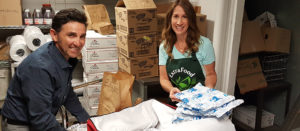 te it to someone in need. ExtraFood picks up excess fresh foods from organizations and businesses and delivers them immediately to various nonprofits that serve Marin’s population of hungry people. The foods that they deliver include fresh produce, prepared food, eggs, meat, dairy, packaged goods, and baked goods. According to Zauderer, “ExtraFood delivers food to more than 5,000 people per month to over 80 different sites around the county.” In three years of operation, ExtraFood has delivered over 900,000 pounds of food collected from over 150 donors to almost 83 different sites in Marin. This includes 13 new food programs they have started with their partners to expand the safety net further. ExtraFood has made 11,000 deliveries and continues to regularly supply food to Marin County. Zauderer explains that every donation counts, even the smallest contribution can make a difference.
te it to someone in need. ExtraFood picks up excess fresh foods from organizations and businesses and delivers them immediately to various nonprofits that serve Marin’s population of hungry people. The foods that they deliver include fresh produce, prepared food, eggs, meat, dairy, packaged goods, and baked goods. According to Zauderer, “ExtraFood delivers food to more than 5,000 people per month to over 80 different sites around the county.” In three years of operation, ExtraFood has delivered over 900,000 pounds of food collected from over 150 donors to almost 83 different sites in Marin. This includes 13 new food programs they have started with their partners to expand the safety net further. ExtraFood has made 11,000 deliveries and continues to regularly supply food to Marin County. Zauderer explains that every donation counts, even the smallest contribution can make a difference.
Another local organization working to take action against hunger in Marin is The Fairfax Food Pantry, co-founded by Holly Bragman. Bragman 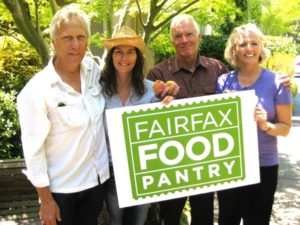 helped create The Fairfax Food Pantry in 2011 because she noticed that there was a need for this service in the Fairfax community: 25% of the participants of the San Geronimo Valley Community Center Food Pantry were from Fairfax. Bragman decided to open up the Food Pantry in Fairfax because transportation is often very difficult for people who are food insecure, and this new location would provide more central access to healthy nutritious foods. Located in the Fairfax Community Church, The Fairfax Food Pantry feeds over 130 families every week. According to Bragman, “the Pantry receives donations totaling 5,000 to 8,000 pounds of food per week.” These foods mainly include protein like meat, fresh veggies, fruit, and other staples for the everyday kitchen. If they have extra food at the end, they often give it to other locations or organizations like St. Vincent’s. Bragman’s vision is to act locally, helping the community through a system that includes Fairfax Volunteers, the Town of Fairfax, and the Fairfax Community Church to create an easy and accessible way for people to obtain healthy, fresh foods.
helped create The Fairfax Food Pantry in 2011 because she noticed that there was a need for this service in the Fairfax community: 25% of the participants of the San Geronimo Valley Community Center Food Pantry were from Fairfax. Bragman decided to open up the Food Pantry in Fairfax because transportation is often very difficult for people who are food insecure, and this new location would provide more central access to healthy nutritious foods. Located in the Fairfax Community Church, The Fairfax Food Pantry feeds over 130 families every week. According to Bragman, “the Pantry receives donations totaling 5,000 to 8,000 pounds of food per week.” These foods mainly include protein like meat, fresh veggies, fruit, and other staples for the everyday kitchen. If they have extra food at the end, they often give it to other locations or organizations like St. Vincent’s. Bragman’s vision is to act locally, helping the community through a system that includes Fairfax Volunteers, the Town of Fairfax, and the Fairfax Community Church to create an easy and accessible way for people to obtain healthy, fresh foods.
What can you do? You can support ExtraFood by committing to volunteer as a “food runner” and deliver healthy food to those in need. You can also help by encouraging other Marin businesses and organizations to donate their extra or leftover food. (For more information visit: ExtraFood.org) To support the Fairfax Food Pantry, you can donate money, sign up to volunteer, or something as simple as dropping off empty paper bags from 8:30-11:30 a.m. on Saturdays at the Fairfax Food Pantry. (For more information visit: FairfaxVolunteers.org)
Together we can help solve hunger in our local community by making small changes to our consumer behavior, and making a conscious effort to help those in need.
Ride the bus with us to the SF Women's March!
Take Golden Gate Transit with Sustainable Fairfax to The Women’s March: San Francisco on Saturday, January 21st
Take the Bus…. Protect the Climate, Ease Traffic & Boost Community!
MEET AT THE DOWNTOWN FAIRFAX BUS STOP (across from Perry’s Deli) at 1:45 pm. We will be catching the #23 at 2:00pm and connecting to the #101 at the San Rafael Transit station at 2:45 pm.
THINGS TO BRING • bus money • warm clothes • comfortable shoes • rain protection • candle for vigil
GETTING THERE:
BUS FARE: The full cash bus fare for adults to SF is $6.75. Cash fares for seniors 65-plus is 50% off with accepted ID, including a Medicare card or senior clipper card. Disabled riders with proper ID also receive a 50% discount. Youth 5-18 are also 50% off. Children under 5 are free.
The Clipper card discount rate is $5.40 each way. You can buy a Clipper Card at the Walgreen’s at Red Hill (strongly suggested- see below). We also will be selling a limited supply of Clipper Cards. If you are unfamiliar with the Clipper Cards, learn more here!
THE RETURN:
We will likely be taking the Larkspur ferry from the SF Ferry Building at 7:25pm. We will connect with Marin Transit buses in Larkspur Landing to return to Fairfax by approximately 8:45pm. The full fare for the ferry is $11.oo. However for Clipper Card holders, the fare is only $7.25! The Marin Transit bus will cost $2.00 (or $1.80 with the Clipper Card).
BUYING A CLIPPER CARD: If you buy a Clipper Card at Walgreens for this event, we suggest loading it with at least $20. The money on your card never expires and can be used on any Marin or SF bus, ferry, train, BART, etc.
BRINGING CASH FOR TRANSPORTATION: If you are bringing cash for bus fare, rather than a Clipper Card, please bring $20 in 1’s and 5’s. It is helpful to have loose change as well.
RSVP: Email SustainFX@gmail.com
Call Lynette on the day of the event with any questions at 415-261-7458.
SF WOMEN’S MARCH INFO:
Time of San Francisco Rally: 3 – 5PM
Time of March: 5 – 8PM
Starting Location: Civic Center
Ending Location: Justin Herman Plaza (about 1.7 miles)
No tickets required. Please register for the March on the Eventbrite page.
____________
Also check out these other local marches:
Fri Jan 20- 1pm-6pm: Marin Unity March & Rally
• 1:00pm: Meet at the San Anselmo Hub or Pickleweed Park in The Canal
• 2-3:30pm: Rally at San Rafael City Hall at 2-3:30pm
• 4-6pm: Rally at B St Community Center (618 B St)
Sat Jan 21- 10am-3pm: Women’s March: Oakland
• Meet at Madison Park, Oakland at 10am
Film & Speaker Night: This Changes Everything- Friday, January 13
What if confronting the climate crisis is the best chance we’ll ever get to build a better world? This Changes Everything is an epic attempt to re-imagine the vast challenge of climate change.
Directed by Avi Lewis, and inspired by Naomi Klein’s international non-fiction bestseller This Changes Everything, the film presents seven powerful portraits of communities on the front lines. Interwoven with these stories of struggle is Klein’s narration, connecting the carbon in the air with the economic system that put it there. Throughout the film, Klein builds to her most controversial and exciting idea: that we can seize the existential crisis of climate change to transform our failed economic system into something radically better.
Our speaker for the evening, Michael Newland, is an archaeologist, essayist, and public speaker who presents regularly on the intersection of archaeology, climate change, and public life. Mike has over two decades of archaeological field and research experience across California. He specializes in collaborative research, recently co-authoring, with tribal representatives from three different tribes, a chapter on climate change in California that will be published soon by Oxford Press in Public Archaeology and Climate Change. Mike is a frequent commentator on the intersection of archaeology and the public through the KQED Perspectives series.
Michael Newland has an Master’s degree in Cultural Resource Management from Sonoma State University and is a Senior Archaeologist with Garcia and Associates.
Film & Speaker Night: This Changes Everything- Friday, January 13
What if confronting the climate crisis is the best chance we’ll ever get to build a better world? This Changes Everything is an epic attempt to re-imagine the vast challenge of climate change.
Directed by Avi Lewis, and inspired by Naomi Klein’s international non-fiction bestseller This Changes Everything, the film presents seven powerful portraits of communities on the front lines. Interwoven with these stories of struggle is Klein’s narration, connecting the carbon in the air with the economic system that put it there. Throughout the film, Klein builds to her most controversial and exciting idea: that we can seize the existential crisis of climate change to transform our failed economic system into something radically better.
Our speaker for the evening, Michael Newland, is an archaeologist, essayist, and public speaker who presents regularly on the intersection of archaeology, climate change, and public life. Mike has over two decades of archaeological field and research experience across California. He specializes in collaborative research, recently co-authoring, with tribal representatives from three different tribes, a chapter on climate change in California that will be published soon by Oxford Press in Public Archaeology and Climate Change. Mike is a frequent commentator on the intersection of archaeology and the public through the KQED Perspectives series.
Michael Newland has an Master’s degree in Cultural Resource Management from Sonoma State University and is a Senior Archaeologist with Garcia and Associates.
